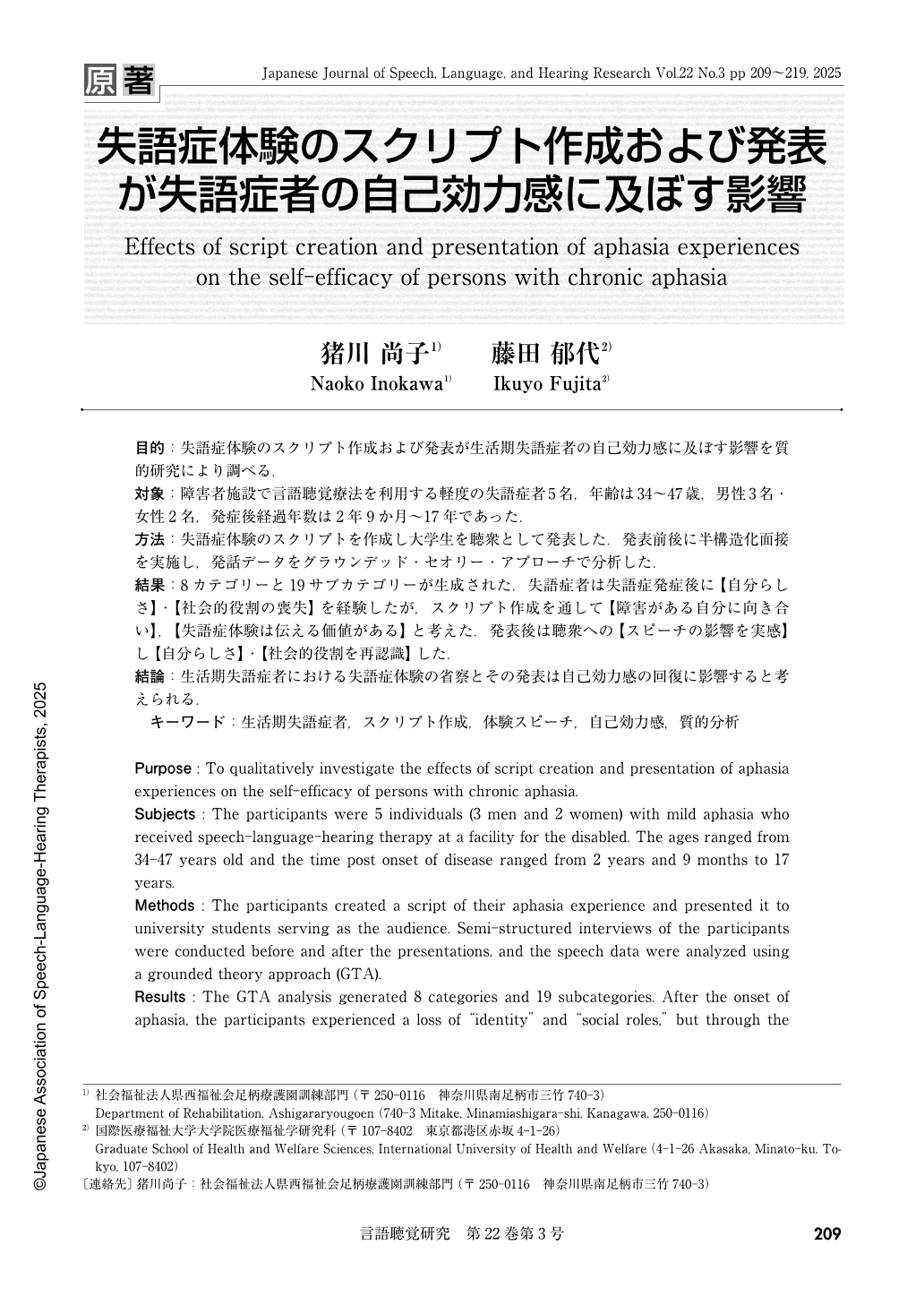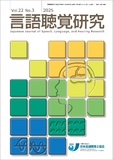Japanese
English
- 有料閲覧
- Abstract 文献概要
- 1ページ目 Look Inside
- 参考文献 Reference
目的:失語症体験のスクリプト作成および発表が生活期失語症者の自己効力感に及ぼす影響を質的研究により調べる.
対象:障害者施設で言語聴覚療法を利用する軽度の失語症者5名,年齢は34〜47歳,男性3名・女性2名,発症後経過年数は2年9か月〜17年であった.
方法:失語症体験のスクリプトを作成し大学生を聴衆として発表した.発表前後に半構造化面接を実施し,発話データをグラウンデッド・セオリー・アプローチで分析した.
結果:8カテゴリーと19サブカテゴリーが生成された.失語症者は失語症発症後に【自分らしさ】・【社会的役割の喪失】を経験したが,スクリプト作成を通して【障害がある自分に向き合い】,【失語症体験は伝える価値がある】と考えた.発表後は聴衆への【スピーチの影響を実感】し【自分らしさ】・【社会的役割を再認識】した.
結論:生活期失語症者における失語症体験の省察とその発表は自己効力感の回復に影響すると考えられる.
Purpose:To qualitatively investigate the effects of script creation and presentation of aphasia experiences on the self-efficacy of persons with chronic aphasia.
Subjects:The participants were 5 individuals (3 men and 2 women) with mild aphasia who received speech-language-hearing therapy at a facility for the disabled. The ages ranged from 34-47 years old and the time post onset of disease ranged from 2 years and 9 months to 17 years.
Methods:The participants created a script of their aphasia experience and presented it to university students serving as the audience. Semi-structured interviews of the participants were conducted before and after the presentations, and the speech data were analyzed using a grounded theory approach (GTA).
Results:The GTA analysis generated 8 categories and 19 subcategories. After the onset of aphasia, the participants experienced a loss of “identity” and “social roles,” but through the process of creating scripts, the participants came to “face one's disability” and thought that “the experience of aphasia is worth sharing”. After the presentation, the participants felt the impact of their speech on the audience and were able to regain “identity” and “social roles”.
Conclusion:Reflecting on aphasia experiences and making a presentation can influence the recovery of self-efficacy in persons with chronic aphasia.

Copyright © 2025, Japanese Association of Speech-Language-Hearing Therapists. All rights reserved.


